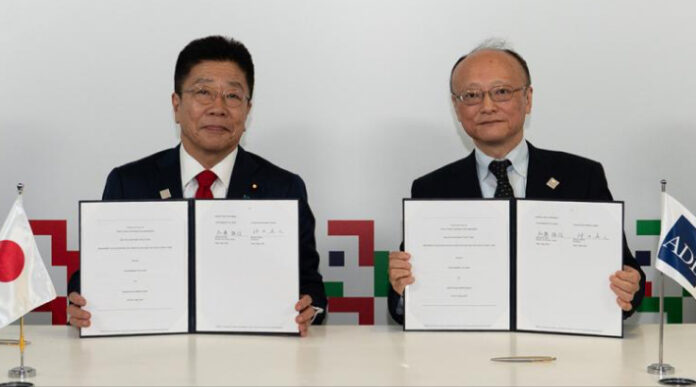Call to deepen cooperation, accelerate investment for resilient, sustainable growth in Asia-Pacific
The Asian Development Bank (ADB) has called for intensified collective action to confront the region’s mounting challenges, framing today’s uncertainty as an inflection point for building a more resilient and sustainable future. Speaking at the Opening Session of ADB’s 58th Annual Meeting of the Board of Governors in Milan, Italy, ADB President Masato Kanda emphasized the urgency of coordinated responses to external shocks, climate change, and debt burdens.
“Uncertainty is not a reason for retreat. It is a call to be bolder, to move faster, and to work more closely than ever before,” Kanda said, underscoring the region’s solid growth foundations, deepening trade integration, and expanding digital connectivity as levers for transformation.
The Milan gathering brought together over 5,000 participants—including heads of state, ministers, business leaders, and civil society representatives—to discuss the macroeconomic trajectory and development strategies for Asia and the Pacific. Italian Prime Minister Giorgia Meloni attended the high-level event, joined by Italian Minister of Economy and Finance Giancarlo Giorgetti and Fabio Panetta, governor of the Bank of Italy and chair of the ADB Board of Governors.
Giorgetti highlighted the macroeconomic imperative of partnership with the ADB, noting, “Enhanced collaboration will support higher and sustainable long-term economic growth, avoiding the materialization of downside risks and mitigating their possible consequences.”
The ADB identified four strategic focus areas central to fostering transformational growth in the region. These include:
- Food Systems Transformation – With a pledge to scale up financing to $40 billion by 2030, ADB aims to bolster food security and agricultural resilience.
- Digital Inclusion – Investment in digital technologies will expand access to education, finance, and markets, unlocking inclusive economic potential.
- Energy Connectivity – ADB signaled readiness to commit up to $10 billion for initiatives such as the ASEAN Power Grid, modernizing infrastructure and supporting the energy transition.
- Climate and Infrastructure Resilience – Deepened investment in sustainable infrastructure and ecosystem restoration will support communities facing climate impacts.
Additionally, ADB reaffirmed its commitment to private sector development, targeting a fourfold increase in annual private financing to USD13 billion by 2030.
With global volatility clouding economic outlooks, the Annual Meeting underscored the ADB’s evolving role as a stabilizing force and strategic partner. As Kanda concluded, the path forward lies in “moving faster and working more closely,” aligning ambition with action to navigate uncertainty and secure long-term regional prosperity.







